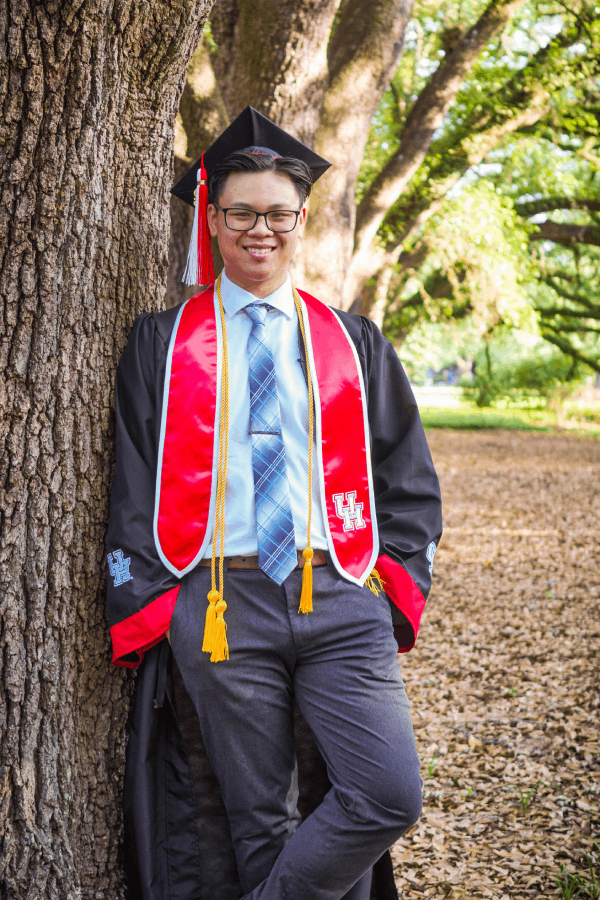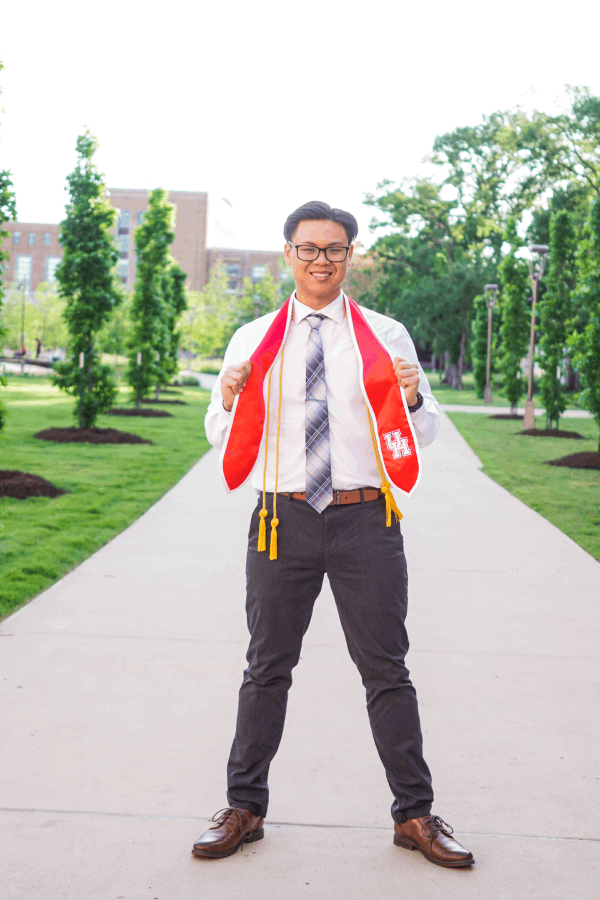This spring, Nathan Tran was one of the first students to graduate with a bachelor’s degree in Computer Engineering & Analytics (CEA) from the Cullen College of Engineering.
The CEA program combines computer engineering and data science, and “students are taught a blend of topics from computer engineering including software and systems, control systems and robotics, and data analytics, which build upon a core engineering foundation.” Its first cohort graduated this semester.
Tran transferred to the University of Houston from Lone Star College, and while he also considered schools like UT, he chose UH because it was not only close to home but offered the most advantageous credit transfer options.
He originally expected to transfer into the Computer Engineering program, but a small transfer portal mix-up saw him enrolled in CEA instead.
“But it worked out really well, because I’ve really enjoyed this program,” Tran said.
Because the CEA program is located largely at UH’s Katy Campus, Tran found that getting involved in student activities wasn’t as easy as he’d hoped; most of them take place at the main campus. He was instrumental in starting up a student organization akin to a makerspace — “essentially a club for work on personal projects” — to facilitate additional “hands-on experience… using the skillsets that we learned in our courses.”
“I came into this program wanting to participate in student organization activities, but it’s so far from the main campus that there weren’t many opportunities available. Our cohort decided to do is to create our own organization, which would allow other engineering students [at UH’s Katy Campus] to connect with each other and have a common workplace to work on projects,” Tran said.
“If there was a project you had always wanted to tackle, this organization helped students come up with the proper engineering steps to complete that project. That’s one of my favorite accomplishments: starting that organization and getting students inspired to start their own projects so they can be ready for the workforce and the future,” he added.
Tran is also proud of having been able to contribute to the CEA program directly through several years as a TA and in collaboration with Instructional Associate Professor Deepa Ramachandran. After noting that some of his labs were incorporating topics the cohort hadn’t yet fully covered, he got to work.
“Dr. Deepa asked me to come up with some lab ideas that were better aligned with the course material while also maintaining that extra knowledge we needed to acquire. I was able to come up with some suggestions and help give feedback to grow the program. Being able to work directly with our professors and them taking that feedback seriously is a big part of our success,” said Tran.
He first expected to pursue a career focused on control systems or electronics, but Tran’s plans have shifted after a cybersecurity-focused summer internship with oil and gas company Motiva Enterprises.
“I’ve taken a deep interest in cybersecurity. I’m actually getting my master’s degree in cybersecurity with a focus in space systems, because it’s a good combination of everything I’ve learned in terms of penetration testing and reverse engineering while also taking aspects of the courses I took in CEA. It combines the best of both worlds,” he said.
Even as he embarks on his next degree and faces new frontiers, CEA will always have Tran’s heart.
“I really do want this program to succeed,” he said. “It’s given us new insight into how big our engineering field is in general, and it’s changed me and my peers for the better.”

